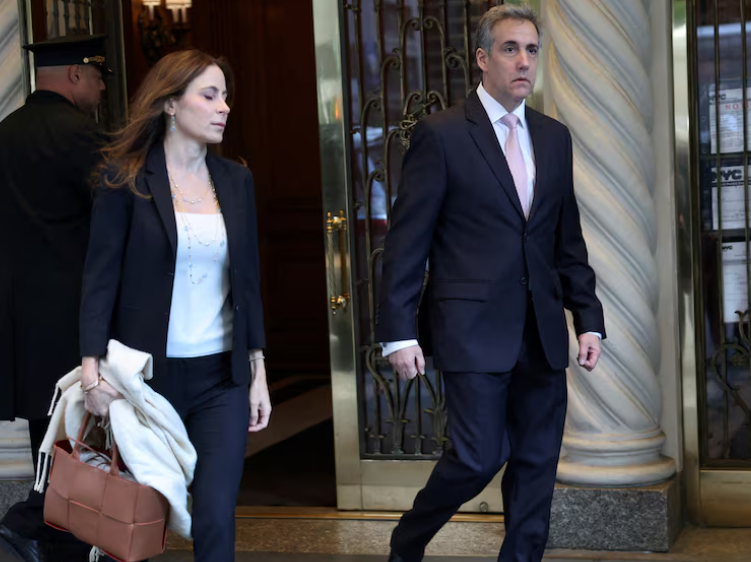In a dramatic courtroom testimony on Monday, Michael Cohen, aged 57, provided a detailed account of the events leading up to the controversial hush-money payment central to former President Donald Trump’s legal troubles in New York City.
The pivotal moment occurred on October 7, 2016, when Trump’s presidential campaign was rocked by the release of the infamous Access Hollywood tape, wherein Trump made disparaging remarks about women.
This revelation prompted a frenzied response within the campaign.
Three days later, Cohen found himself embroiled in an email exchange involving then-National Enquirer editor Dylan Howard and Keith Davidson, the attorney representing adult film actress Stormy Daniels.
The email hinted at a “business opportunity,” which ultimately translated into a hush-money payment orchestrated by Cohen.
Cohen’s testimony aligned closely with the prosecution’s narrative, implicating Trump in both the decision-making process behind the hush-money scheme and the subsequent movement of funds.
According to Cohen, Trump reacted angrily upon learning of the Daniels news, expressing frustration and expecting Cohen to have resolved the matter.
The looming threat posed by Daniels’ allegations prompted Trump to acknowledge the potential damage it could inflict on his campaign, particularly among female voters.
Trump allegedly instructed Cohen to handle the situation discreetly, suggesting collaboration with David Pecker, the former CEO of American Media Inc., parent company of the National Enquirer.
Trump advised delaying any resolution until after the 2016 election, indicating that the outcome would determine the relevance of the allegations.
Cohen recounted his efforts to stall Daniels’ attorney and orchestrate the payment through various channels, including discussions with Allen Weisselberg, a former top Trump accountant.
Despite initial reluctance due to financial constraints, Cohen eventually facilitated the payment through Essential Consultants LLC, a shell company.
Crucially, Cohen testified that both Weisselberg and Trump assured him of reimbursement, marking a significant development in the prosecution’s case.
The prosecution contends that Cohen was systematically repaid by Trump, with alleged reimbursements disguised as legal fees.
These payments, totaling $420,000 in 2017, included the hush-money amount and formed the basis of the felony charges against Trump.
As the trial unfolds, Cohen’s testimony provides a damning portrayal of the events surrounding the hush-money payment and sheds light on Trump’s alleged involvement in the scheme.

